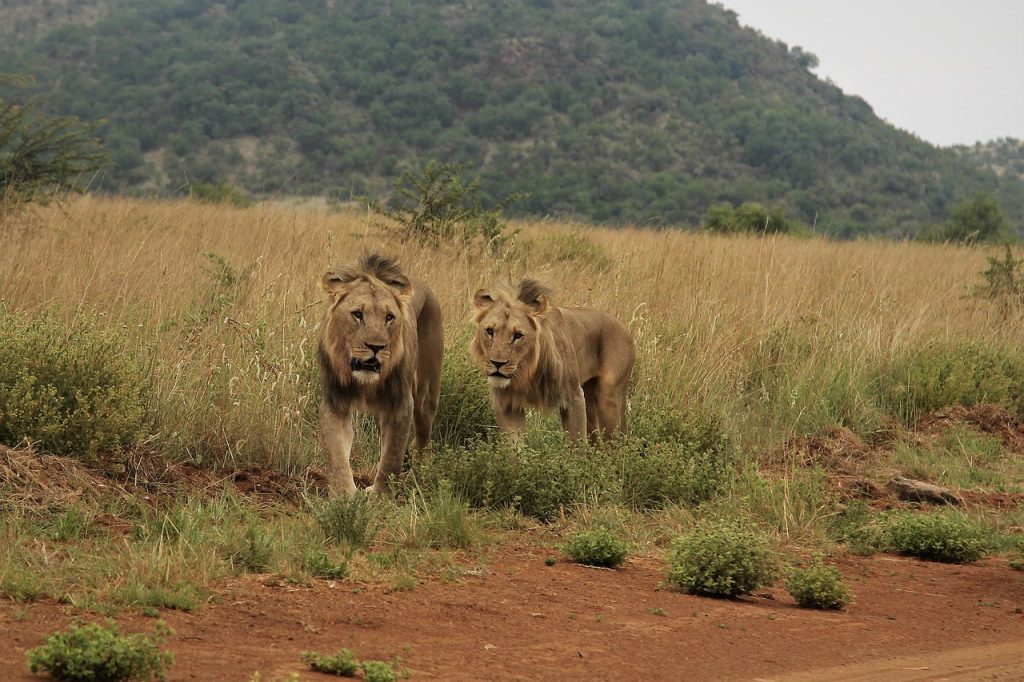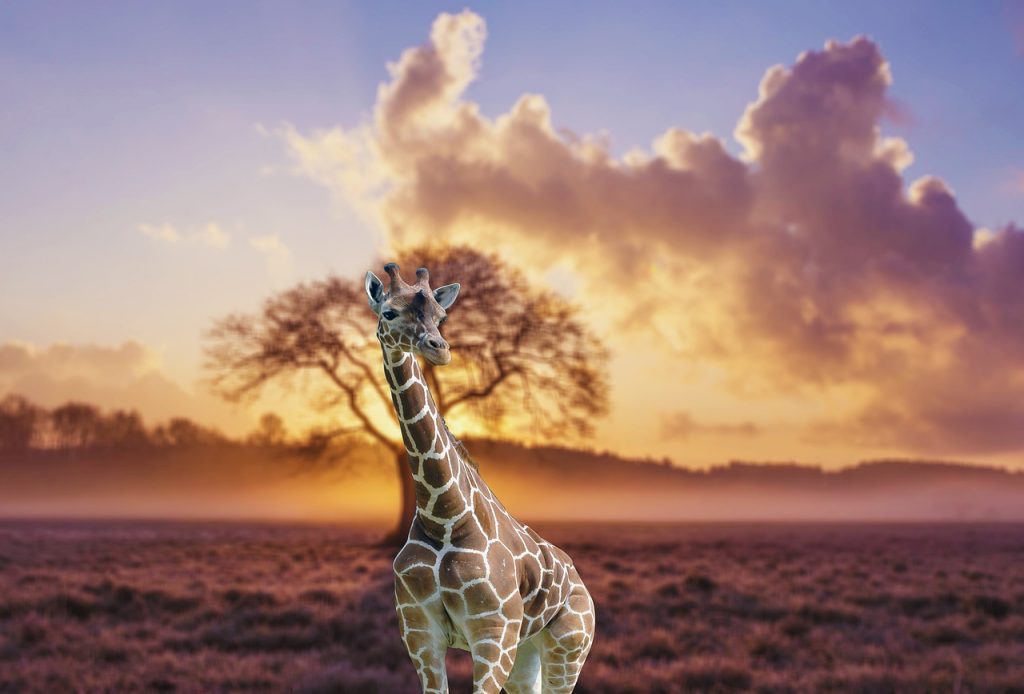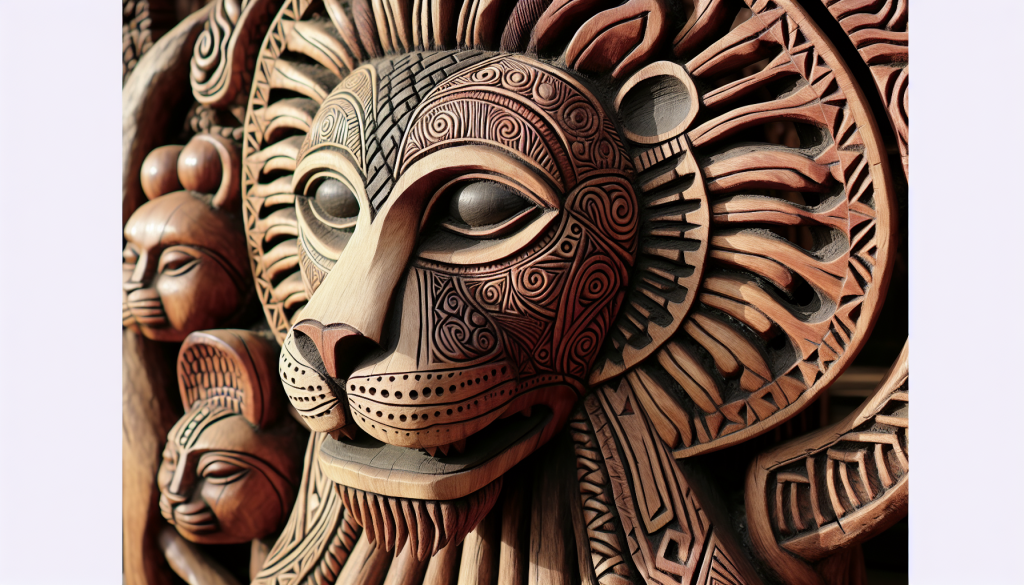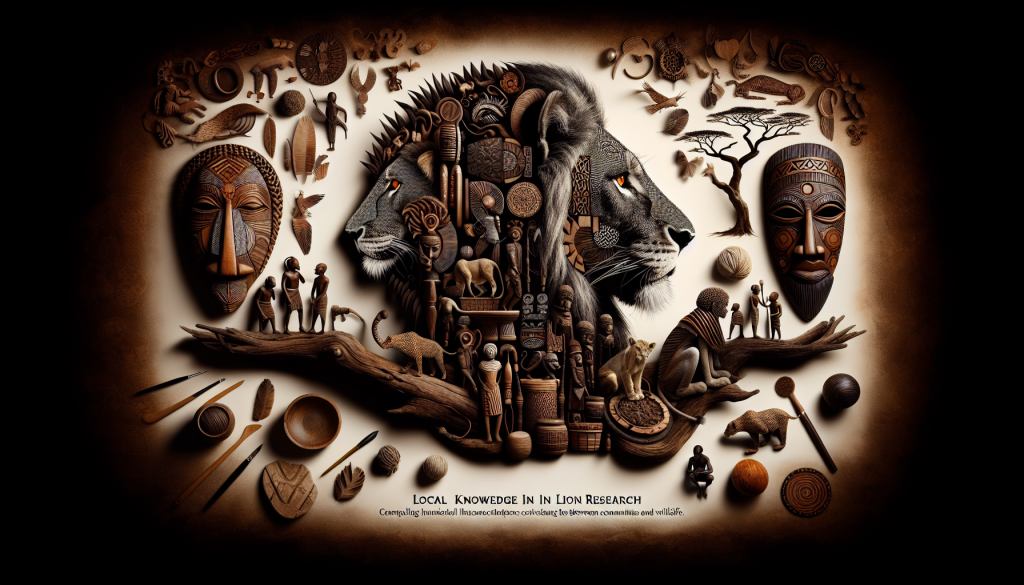So you think you know everything there is to know about lions? Think again. In the vast savannahs of Africa, there is a wealth of knowledge hiding in plain sight – the wisdom of the local communities. This article takes a closer look at how the traditional knowledge and expertise of the people living alongside lions have become an invaluable resource for researchers studying these majestic creatures. From tracking patterns to understanding their behavior, the insights gathered from these communities are shedding new light on the secrets and complexities of lion life. It’s time to discover the untold stories and local wisdom that have been shaping our understanding of the king of the jungle.

Introduction to the importance of local knowledge
Local knowledge plays a vital role in lion research, providing invaluable insights into lion behavior, tracking their movements, assessing human-lion conflicts, understanding local ecosystems, and implementing conservation initiatives. Collaborating with local communities brings together their accumulated wisdom and expertise, harnessing their deep understanding of the land and its inhabitants. By integrating traditional knowledge systems with scientific research, we can enhance our understanding of lions’ lives and work towards coexistence and conservation.
The role of communities in lion research
Communities are not just passive observers in lion research; they are actively engaged in studies and contribute significantly to our knowledge of lion behavior. Through years of living alongside lions, local communities are attuned to their habits, communication, and social structures. Their first-hand experiences and observations provide researchers with unique insights, filling gaps in scientific knowledge. Additionally, communities often collaborate with researchers, sharing anecdotes and participating in data collection efforts, forming a mutually beneficial relationship that strengthens conservation efforts.
Lion behavior studies conducted by local communities
Local communities have been conducting lion behavior studies long before scientific research began in earnest. Their vast experience of coexisting with lions allows them to closely observe and understand their behavior. This knowledge extends to various aspects, such as territorial dynamics, hunting patterns, reproductive behavior, and social hierarchies within prides. Studying lion behavior through the lens of local communities enables a deeper understanding of these magnificent creatures, enhancing our ability to protect and conserve them effectively.
Insight into lion prides and territories
Local communities possess intimate knowledge of lion prides and their territories. They can identify individual lions based on physical features and characteristic behaviors, often giving them names of personal significance. This understanding of pride dynamics and territories contributes to mapping and monitoring efforts, helping researchers establish conservation strategies. By collaborating with communities, we gain a comprehensive understanding of lion populations, allowing targeted conservation interventions that promote healthy pride structures and mitigate human-wildlife conflicts.
Implications for conservation efforts
Local knowledge is essential for developing successful conservation strategies. Its integration into lion research provides a holistic perspective, accounting for cultural, social, and ecological factors that influence lion populations. By leveraging the wisdom of communities, we can implement conservation initiatives that are culturally sensitive and inclusive, considering the needs and aspirations of both humans and lions. This approach fosters a sense of ownership and empowerment within communities, making conservation efforts sustainable and effective in the long run.
Traditional tracking techniques employed by local communities
Local communities have honed their tracking skills over generations, using traditional techniques to follow and monitor lions. These techniques, passed down through oral traditions, rely on keen observation of tracks, scents, and other signs left by lions. By tracking lion movements, communities can gain insights into their behavior, migratory patterns, and territorial range. These tried and tested methods, rooted in local knowledge, continue to be valuable tools for researchers, complementing modern tracking technologies for more accurate data collection.

The use of modern technology in conjunction with local knowledge
While traditional tracking techniques are crucial, they can be enhanced by the use of modern technology. Collaborations between researchers and communities have led to the integration of GPS tracking devices and camera traps into lion monitoring efforts. Local communities play a vital role in deploying and maintaining these technologies, working hand in hand with researchers. By combining modern advancements with local knowledge, we can collect more comprehensive and precise data on lion movements, habitat use, and interactions with their environment.
Mapping lion migratory patterns
Understanding lion migratory patterns is critical for effective conservation planning. Local communities, with their deep knowledge of the land and its resources, have contributed significantly to mapping these patterns. By sharing localized knowledge of historical lion movements and corridors, communities help identify key conservation areas and establish appropriate wildlife corridors. This collaboration facilitates landscape-level planning, ensuring that lion populations have access to suitable habitat, minimizing conflicts with human settlements, and promoting sustainable coexistence.
Community experiences and understanding of human-lion conflicts
Human-lion conflicts are a significant challenge to both communities and lion populations. Local communities, with their direct experiences of living near lions, provide invaluable insights into the factors that contribute to conflicts. They can share accounts of livestock predation, crop damage, and the socio-economic impacts of lion encounters. Through their narratives, researchers gain a deeper understanding of the complex dynamics between humans and lions, allowing for the development of context-specific mitigation strategies.

Insights into factors leading to conflicts
Local communities understand the intricate web of factors that contribute to human-lion conflicts. They recognize that conflicts can arise from competition for resources, such as water and grazing land, as well as encroachment into lion territories. Through their knowledge, they can identify specific areas or situations that are prone to conflicts, enabling early intervention and proactive measures. This understanding is crucial for mitigating conflicts and fostering coexistence between communities and lions.
Mitigation strategies from local perspectives
The wisdom of local communities is crucial in developing effective mitigation strategies. Their traditional knowledge of deterrent methods, such as using livestock guardian animals or implementing communal herding practices, can inform conservation efforts. Additionally, communities often advocate for cultural changes within their own ranks, encouraging practices that reduce human-lion conflicts. By involving communities in the decision-making process and valuing their input, conservation initiatives can implement strategies that are culturally appropriate and effective.
Understanding the ecosystems where lions reside
Local knowledge is deeply intertwined with an understanding of the ecosystems in which lions reside. Communities possess an intricate understanding of the habitat, including key resources, seasonal variations, and ecological processes. This knowledge extends to the interconnectedness of species within the ecosystem and the roles lions play in maintaining ecological balance. By combining this knowledge with scientific research, we can gain a more comprehensive understanding of the larger picture, informing conservation efforts that prioritize ecosystem health and resilience.

Traditional ecological practices and their impact on lion habitats
Local communities often have traditional ecological practices that have shaped the landscapes they inhabit. These practices may include controlled burning, rotational grazing, or sustainable harvesting techniques. Such practices, developed over generations, have a direct impact on lion habitats. By collaborating with communities, conservation efforts can draw upon these traditional practices, integrating them into holistic management plans that promote biodiversity and restore degraded habitats, benefitting not only lions but also other species that share these ecosystems.
Coexistence strategies between humans and lions
Local communities have developed coexistence strategies based on their deep knowledge of lion behavior and the surrounding environment. These strategies range from physical deterrents, such as constructing reinforced enclosures for livestock, to communal decision-making processes that prioritize conservation values. By understanding and valuing these strategies, conservation initiatives can support and enhance community-led efforts, promoting harmonious coexistence between humans and lions, even in areas with high human population densities.
The role of local communities in lion conservation
Local communities are at the forefront of lion conservation efforts as they are directly impacted by the presence of these magnificent creatures. Their involvement is paramount for garnering support and achieving long-term success. Communities act as stewards of the land, participating in habitat restoration, anti-poaching efforts, and community-based monitoring programs. Their role extends beyond mere observers; they become active partners in conservation, ensuring the preservation of lions for future generations.

Success stories of community-led conservation projects
Numerous success stories highlight the effectiveness of community-led conservation projects. For example, in areas where local communities have been involved in ecosystem management and wildlife protection, there have been positive outcomes for lion populations. Through initiatives such as community-led ecotourism, communities have experienced economic benefits, while also fostering a sense of responsibility and pride in protecting their natural heritage. These success stories demonstrate that when communities are empowered and their traditional knowledge is valued, conservation efforts can thrive.
Challenges faced by community-based initiatives
While community-based initiatives have yielded positive results, they are not without challenges. Limited funding and resources can hinder the implementation of sustainable conservation practices. Additionally, external pressures, such as population growth, unsustainable land-use practices, and climate change, can strain the delicate balance between human needs and conservation goals. It is imperative to address these challenges by fostering partnerships, providing support, and engaging in dialogue to overcome barriers and ensure the success of community-led initiatives.
Lions in local traditions and folklore
Lions hold a significant place in the traditions and folklore of many local communities. Their symbolism extends beyond the realm of wildlife and represents strength, courage, and leadership. Lions often feature in cultural ceremonies, dances, and rituals, reflecting their cultural significance. By understanding and respecting these cultural beliefs, lion conservation initiatives can strengthen community involvement and promote the preservation of cultural heritage alongside the conservation of lion populations.
Mythology surrounding lions within communities
Many communities have rich mythologies and stories surrounding lions. These myths often highlight the interconnectedness between humans and nature, emphasizing the moral and spiritual lessons lions embody. By preserving and sharing these mythologies, local communities contribute to the promotion of environmental values and the need for conservation. This cultural significance instills a deep sense of responsibility and respect for lions, fostering a harmonious relationship between communities and these majestic animals.
Preserving cultural heritage through lion conservation
Conservation efforts that incorporate cultural heritage preservation can have far-reaching benefits. By recognizing the cultural significance of lions and integrating this into conservation initiatives, local communities are empowered to take a leading role in protecting their heritage and natural environment. This approach not only safeguards traditional knowledge and practices but also strengthens community bonds and sense of identity. Preserving cultural heritage alongside lion conservation creates a win-win situation, fostering sustainable conservation practices rooted in local values.
Capturing and preserving traditional knowledge related to lions
Documenting and preserving traditional knowledge related to lions is crucial for the ongoing transmission of this wisdom to future generations. Through collaborative efforts between communities and researchers, local knowledge can be recorded in a culturally sensitive and respectful manner. This documentation can take various forms, including written records, audiovisual materials, or community-led archives. By creating platforms for recording and preserving traditional knowledge, we ensure its longevity and accessibility, benefiting both communities and future lion research.
Ethical considerations in knowledge sharing and ownership
While documenting traditional knowledge, ethical considerations must be taken into account. Ownership and control of this knowledge reside with the communities, and their free prior informed consent must be obtained for any use or sharing of this information. Researchers and conservation organizations should adopt a participatory approach, engaging communities in decision-making processes and respecting their intellectual property rights. By upholding ethical principles, we nurture trust, foster collaboration, and ensure that local communities are active partners in the dissemination of knowledge.
Creating platforms for intergenerational knowledge transfer
Inter-generational knowledge transfer is essential for the continuity of local knowledge related to lions. Communities must explore ways to pass on this knowledge to younger generations, ensuring its longevity and relevance. Creating platforms for intergenerational knowledge exchange, such as storytelling sessions, mentorship programs, or community workshops, fosters the transmission of wisdom from older community members to younger ones. By prioritizing intergenerational knowledge transfer, local communities safeguard their cultural heritage and ensure the continuation of valuable insights into lion behavior.
The value of interdisciplinary collaboration
Collaboration between scientists and local communities brings together diverse knowledge systems to address complex conservation challenges. Interdisciplinary collaboration recognizes the complementarity of scientific and traditional knowledge, fostering innovative solutions. By combining ecological research with local knowledge, we gain a deeper understanding of lions and their ecosystems, improving the effectiveness of conservation measures. This partnership allows for the integration of different perspectives, ensuring that decision-making processes are comprehensive and inclusive.
Positive outcomes of partnering with local communities
Partnering with local communities has yielded positive outcomes in lion research and conservation. By involving communities, research efforts become community-led, increasing the likelihood of long-term success. Communities’ participation in data collection enhances the quality and scope of research, filling gaps in scientific knowledge. Moreover, collaboration builds trust, fostering a sense of shared responsibility and ownership in conservation initiatives. Positive outcomes include increased local support for conservation, reduced conflicts, and enhanced ecological resilience in lion habitats.
Potential challenges and conflicts in scientific community engagement
Engaging with local communities also brings potential challenges and conflicts. Miscommunication, power imbalances, and differing priorities can strain relationships between scientists and communities. It is imperative to foster open dialogue, respect cultural differences, and ensure equitable participation throughout the research process. Effective engagement requires adaptability and flexibility, recognizing that scientific goals must align with the needs and aspirations of local communities. By addressing these challenges proactively, collaborations can overcome potential conflicts and foster meaningful partnerships.
Recognizing the indispensable role of local knowledge
Local knowledge plays an indispensable role in lion research and conservation. Its integration enhances our understanding of lion behavior, informs conservation strategies, and fosters sustainable coexistence. Recognizing the value of local knowledge is crucial for effective and ethical lion research. By embracing and integrating traditional wisdom, we can bridge the gap between scientific research and community-based conservation efforts, maximizing our collective potential to protect and conserve lion populations.
Integrating traditional and scientific knowledge systems
Integrating traditional and scientific knowledge systems is a powerful approach in lion research and conservation. By combining different ways of knowing, we gain a more comprehensive understanding of the complexities of lion behavior, their ecological role, and interactions with human communities. This integration allows for innovative and context-specific conservation strategies that strike a balance between cultural values, ecological sustainability, and economic well-being. By embracing the richness of multiple knowledge systems, we pave the way for holistic conservation initiatives that benefit both lions and local communities.
Promoting inclusivity in lion research
Promoting inclusivity in lion research is essential for equitable and effective conservation. Recognizing and respecting the knowledge held by local communities ensures that decision-making processes are inclusive and representative. Inclusivity fosters ownership, participation, and a sense of shared responsibility, enhancing the success and sustainability of conservation initiatives. By valuing diverse perspectives and engaging in meaningful collaborations, we promote inclusivity in lion research, ensuring that all stakeholders have a voice in the protection and coexistence of humans and lions.
In conclusion, local knowledge is a precious resource that enriches our understanding of lions and contributes to more effective conservation efforts. Collaboration between scientists and local communities holds the key to integrating traditional and scientific knowledge systems, fostering community-led initiatives, and promoting inclusive research practices. By recognizing and valuing local knowledge, we can work towards a future where humans and lions coexist harmoniously, preserving both natural heritage and cultural diversity.

